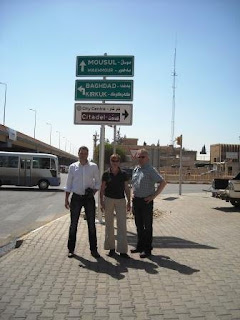TV for female starters

The group of young female starters that is following a six week course in basic journalism at IMCK in Sulaymaniya started on August 12, 2012 on TV. During two weeks they will be taught how to use the camera and edit their material, and how to make a news item for TV. The week started with lessons on using the camera by IMCK trainers Beshad Shwani and Mustafa Al Qais. Shwani is an experienced cameraman who worked with different Kurdish media and now is with NRT. Al Qais has been co-training with IMCK on a number of workshops and is involved in the IMCK post graduate training Media bo Khalk. New photo's of the course can be found on Facebook . The course is supported by the German Consulate in Erbil and the Iraqi First Lady Hero Khan (Ibrahim).



